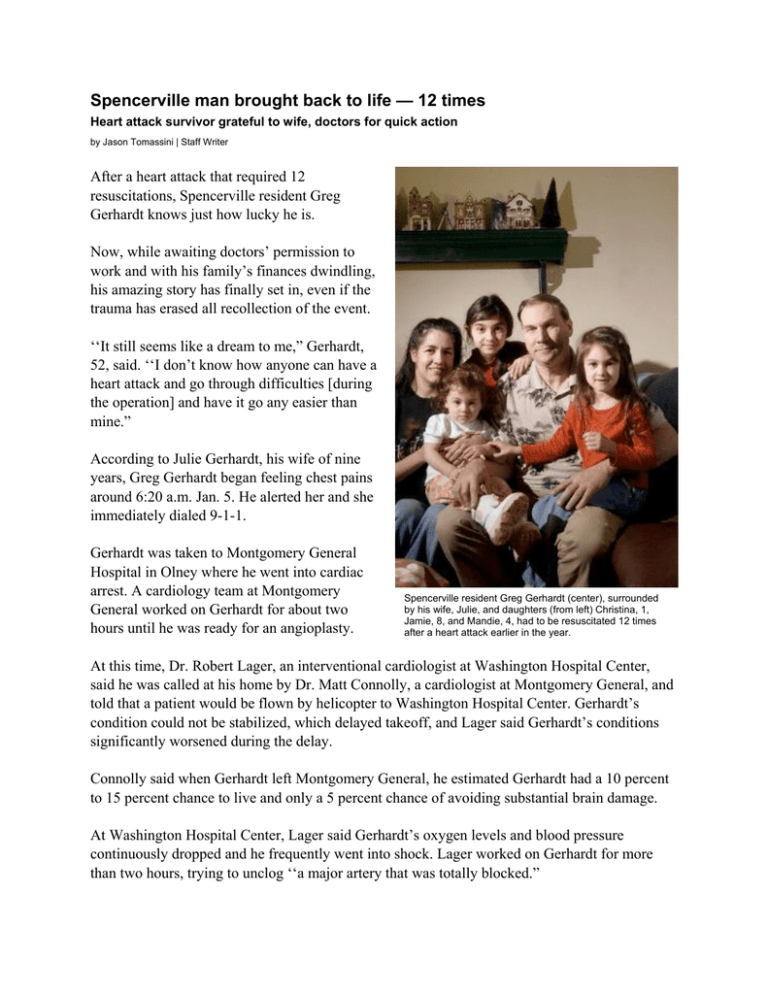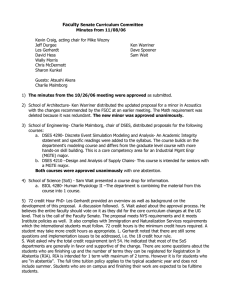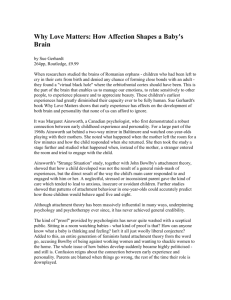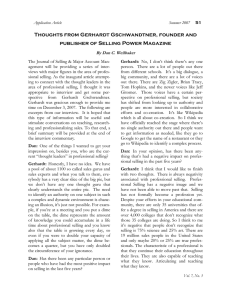Spencerville man brought back to life — 12 times
advertisement

Spencerville man brought back to life — 12 times Heart attack survivor grateful to wife, doctors for quick action by Jason Tomassini | Staff Writer After a heart attack that required 12 resuscitations, Spencerville resident Greg Gerhardt knows just how lucky he is. Now, while awaiting doctors’ permission to work and with his family’s finances dwindling, his amazing story has finally set in, even if the trauma has erased all recollection of the event. ‘‘It still seems like a dream to me,” Gerhardt, 52, said. ‘‘I don’t know how anyone can have a heart attack and go through difficulties [during the operation] and have it go any easier than mine.” According to Julie Gerhardt, his wife of nine years, Greg Gerhardt began feeling chest pains around 6:20 a.m. Jan. 5. He alerted her and she immediately dialed 9-1-1. Gerhardt was taken to Montgomery General Hospital in Olney where he went into cardiac arrest. A cardiology team at Montgomery General worked on Gerhardt for about two hours until he was ready for an angioplasty. Spencerville resident Greg Gerhardt (center), surrounded by his wife, Julie, and daughters (from left) Christina, 1, Jamie, 8, and Mandie, 4, had to be resuscitated 12 times after a heart attack earlier in the year. At this time, Dr. Robert Lager, an interventional cardiologist at Washington Hospital Center, said he was called at his home by Dr. Matt Connolly, a cardiologist at Montgomery General, and told that a patient would be flown by helicopter to Washington Hospital Center. Gerhardt’s condition could not be stabilized, which delayed takeoff, and Lager said Gerhardt’s conditions significantly worsened during the delay. Connolly said when Gerhardt left Montgomery General, he estimated Gerhardt had a 10 percent to 15 percent chance to live and only a 5 percent chance of avoiding substantial brain damage. At Washington Hospital Center, Lager said Gerhardt’s oxygen levels and blood pressure continuously dropped and he frequently went into shock. Lager worked on Gerhardt for more than two hours, trying to unclog ‘‘a major artery that was totally blocked.” Between the operations at Montgomery General and Washington Hospital Center, Gerhardt had to be resuscitated 12 times by defibrillation and also required frequent CPR. Eventually, his condition stabilized and he was placed in intensive care. At that point, Lager said the cardiac problems appeared over but concerns about Gerhardt’s brain emerged. Lager said the first 48 hours after an event like this one are the most crucial, and a patient who goes through cardiac arrest as many times as Gerhardt often never wakes up or suffers severe brain damage. But on the fourth day since he had been admitted, 50 hours after the operation ended, Lager saw a breakthrough. ‘‘I came to see him and there’s no one else in the room,” he said. ‘‘I whispered in his ear, ‘Squeeze my hand,’ and he did and I realized he was going to be OK. It’s a great feeling. ‘‘After that, he rapidly awoke and within the next day, he was off the ventilator and sitting in a regular hospital room having a full conversation about his kids.” Lager said Gerhardt’s lack of previous health problems and the quick response of both Montgomery General and Julie Gerhardt were big reasons for his survival. Gerhardt said the only lasting effect from the operation was some initial muscle weakness. He remembers nothing between when he initially felt ill and when he woke up. Doctors say that is because of the trauma and lack of oxygen to the brain. Gerhardt, who is self-employed as a kitchen remodeler, has not been cleared by doctors to work. As a result, he said he recently was served with an eviction notice and has a hospital bill of $110,000. He is also hoping for a donation from the Larry King Cardiac Association to help with the surgery costs. Gerhardt has three children, ages 8, 4 and 21 months. ‘‘You want to make sure the heart is strong enough to withstand rigors of his job,” said Connolly, who is Gerhardt’s heart therapist and hopes to clear him after eight more weeks of a therapy program. ‘‘He doesn’t have a particularly physically demanding position, so we’ll be able to clear things with fewer rigors than someone who had a job that would be dangerous to himself or others.” Gerhardt said friends and people at his church, Spencerville Free Methodist, have donated money to help pay for utilities and other costs of living. His pastor at Spencerville Free Methodist, Kurt Erhard, said the church has donated between $2,500 and $3,500 and members have treated the Gerhardts to meals, cared for their children and provided general support. ‘‘Our hope is that when someone goes through an experience of that nature, it becomes a steppingstone for them,” Erhard said. Julie Gerhardt said the uncertainty of the family’s livelihood has been stressful for her and her husband, but they realize they are fortunate in other ways. ‘‘You got to look at it from the perspective that there are people out there living on the street that don’t have anything, but then you’ve been given all this,” she said. While Lager hesitates to use the word ‘‘miracle,” to explain the event, the Gerhardts believe they owe something to a higher power for their family to still be intact. ‘‘I’m very blessed,” Gerhardt said. ‘‘When you come back 12 times, there’s more than just medical help.” http://www.gazette.net/stories/042308/montnew105631_32360.shtml





